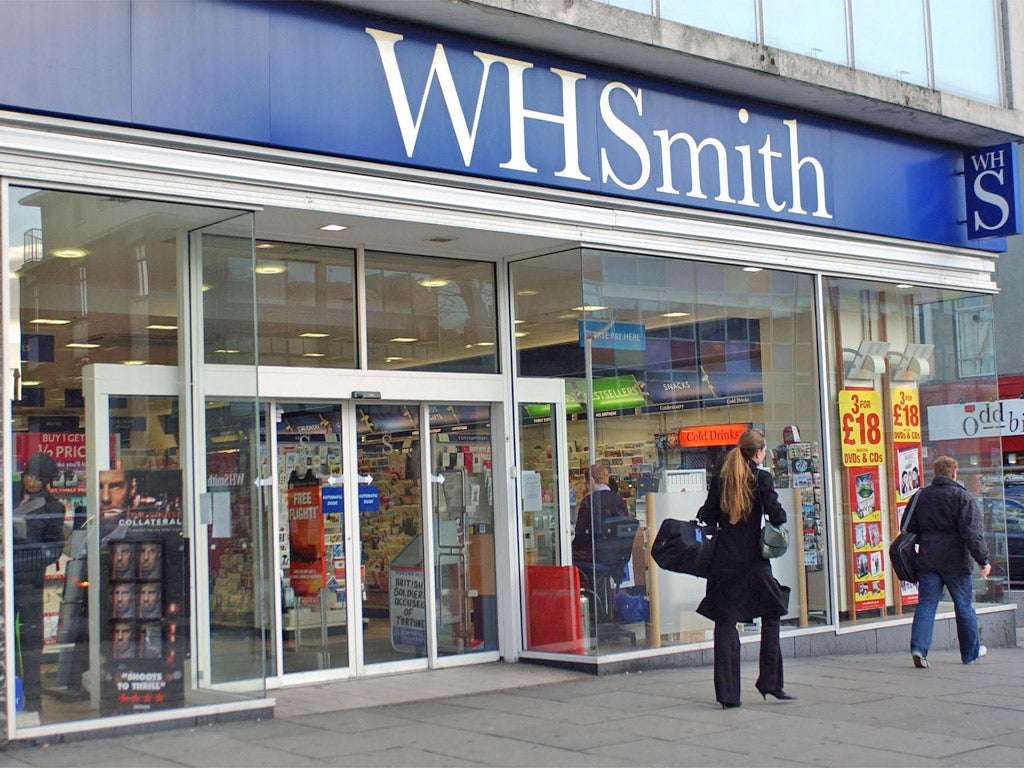A much better story at WH Smith
Five years ago it was seen as another Woolies, but a new chief began a new chapter ...

By the end of August 2003, WH Smith's profits had been falling for at least five years and it was regularly lumped together with Woolworths in terms of high street stalwarts facing eventual extinction.
But in November of that year Kate Swann, the then managing director of Argos, joined as chief executive and started to perform the radical surgery the group desperately required. The rest is history and WH Smith has grown its bottom line consistently since September 2004, providing a stark contrast with the falling profits at her former catalogue specialist employer and the weeds growing over the 2008 grave of Woolies.
The group, which has more than 600 high street and over 560 travel outlets, yesterday provided more evidence of its progress by posting a rise in gross margins at both divisions over the 21 weeks to 21 January, despite a continued 5 per cent fall in its underlying sales.
WH Smith is on track to deliver a 5 per cent rise in pre-tax profits to £98m for the year to the end of August, nearly double the £52m it posted in the financial year before Ms Swann joined.
Nick Bubb, the retail analyst, said: "Given where full-year profits and margins are today, it is a minor miracle considering that five years ago, people thought it could be another Woolies."
He adds: "WHSmith used to be one of the worst-run retailers in the country but she [Ms Swann] has turned it into one of the best."
Ms Swann has worked her magic by remorselessly driving a plethora of operational improvements and cost savings. But she hasn't done it alone, with executives, such as Robert Moorhead, the group finance director, having been at WHSmith since 2004.
Of the changes made, arguably the biggest has been moving WHSmith away from declining sales of low-margin DVDs and CDs to focus on higher-margin books and stationery. But Mr Bubb says the revival of WHSmith has been a combination of factors, including more efficient purchasing from the Far East and its clever management of price promotions.
The retail group has also taken big decisions, such as the demerger of its retail and news distribution arms into two separate companies: WHSmith and Smith News in August 2006. It has also extended its travel outlets in airports, train stations, hospitals and work places, as well as expanding overseas to 60 outlets in countries including Ireland, Dubai, Australia, Denmark and India.
Certainly for shareholders, the results have been spectacular. Shares in the retail group are up by nearly 80 per cent to 554.5p since January 2008, following a further 4 per cent rise yesterday. It has also returned £173m to investors in share buy-backs since 2007, including the current £50m programme, as well as growing its dividend over six years.
However, some industry experts believe that WHSmith can only continue to grow profits for so long, given that its underlying sales have been falling since 2005.
Neil Saunders, managing director at the retail consultancy Conlumino, says: "While this business model is rational over a short to medium period, longer-term it is unsustainable. Eventually cost savings will run out and WHSmith will need to look to grow profits through increasing sales. When the time comes such a strategy will be challenging as the business needs serious investment to bring neglected assets up to scratch; nowhere is this more evident than in the store estate."
Perhaps the big question over the next five years could be whetherWHSmith decides to demerge its travel and high-street arms, although it has repeatedly said there are no active plans. The City forecasts its travel business will post operating profit of £62m for the year to the end of August, despite a slowdown in passenger numbers, compared with £53m for the high-street arm.
However, a major barrier to a potential demerger could centre on whether investors would see long-term value in the high-street arm, which has been run as a cash cow for years on tightly managed costs. Philip Dorgan, the analyst at Panmure Gordon, says: "WHSmith has got to demonstrate some sales growth in the high street business before you can separate them off."
Away from such speculation, Ms Swann can point to facts such as that the months of November and December now only account for less than half of annual group profits, compared with more than 90 per cent six years ago. This is in sharp contrast to HMV, where December alone accounts for about 40 per cent of annual sales.
Portas vs Swann: A Twitter tirade
Kate Swann, the chief executive of WHSmith, declined to respond to vicious criticism of the group's travel shops by Mary Portas, the self-styled Queen of Shops, who ran a review of the high street for the Government last year.
Ms Portas said in a tirade on Twitter in November: "I truly hate WHSmith. Used to be a loved British biz & now a dump. Rush hour, 7.45am at Euston. One person on till. Queues. And sh***y promos."
But Ms Swann refused to bite and said: "I am just sticking to the knitting and running the business. We do customer surveys all the time and we come out really well."
Subscribe to Independent Premium to bookmark this article
Want to bookmark your favourite articles and stories to read or reference later? Start your Independent Premium subscription today.

Join our commenting forum
Join thought-provoking conversations, follow other Independent readers and see their replies